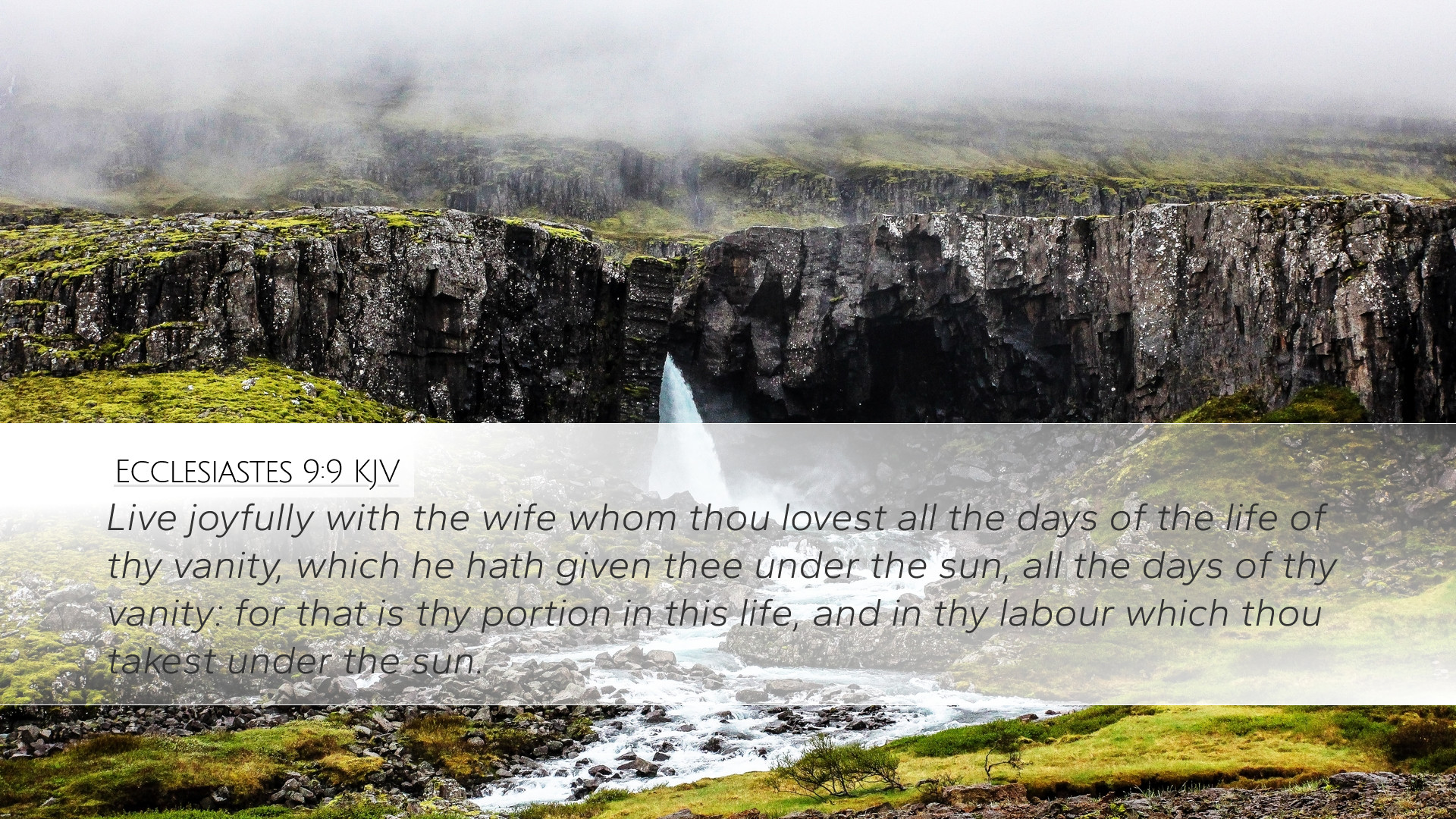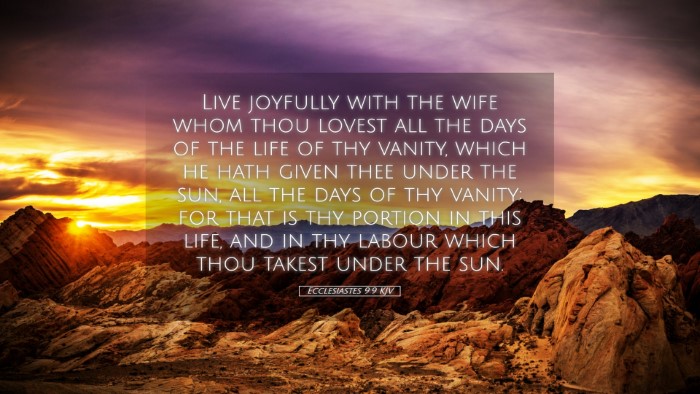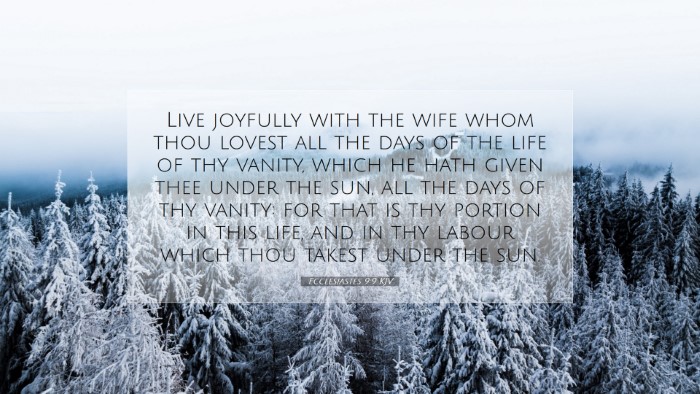Commentary on Ecclesiastes 9:9
Bible Verse: Ecclesiastes 9:9 - "Enjoy life with your wife, whom you love, all the days of this meaningless life that God has given you under the sun—all your meaningless days. For this is your lot in life and in your toil at which you labor under the sun."
Understanding the Context
The book of Ecclesiastes, attributed to King Solomon, addresses the theme of the futility of life and the ephemeral nature of human pursuits. Solomon is seen as delving deep into the worthiness of life’s endeavors and the ultimate meaning behind them. Ecclesiastes 9:9, in its request to enjoy life with one's spouse, acts as a poignant reminder of the sanctity of love and companionship amidst life’s transient nature.
Insights from Matthew Henry
According to Matthew Henry, the call to "enjoy life with your wife" encapsulates the essence of life’s true pleasures. He argues that even in a world perceived as meaningless, family and marital love offer profound joy and fulfillment. The emphasis on "all the days of this meaningless life" reflects an acknowledgment of life’s struggles; however, it proposes that love and enjoyment of simple pleasures in relationships mitigate the despair that might accompany the contemplation of life’s vanity.
Henry further notes that this verse urges individuals to cultivate a sense of appreciation for day-to-day experiences. He implies that while toil might be relentless “under the sun,” the presence of a loving partner transforms daily labor into something meaningful, thus encouraging believers to invest in their relationships as a grounding force amid life’s uncertainties.
Insights from Albert Barnes
Albert Barnes provides a nuanced interpretation of the phrase "meaningless life." He suggests that while life may be filled with trials and adversities, it is crucial for individuals to recognize and seize moments of joy. Barnes emphasizes the significance of marital relationships and the fulfillment they bring, arguing that the bonds of love represent God's design for human companionship.
Barnes also points out that the exhortation serves as a reminder to live life with intention, seeking happiness in everyday interactions. He posits that enjoying life with one’s spouse is not merely a suggestion but an imperative, reinforcing the idea that in the face of existential uncertainties, love can be a source of stability and purpose.
Insights from Adam Clarke
Adam Clarke's commentary stresses the importance of recognizing life as a divine gift. He interprets the phrase "this is your lot in life" as an encouragement to accept one’s circumstances and to find joy within them. Clarke highlights that even in the mundane aspects of life, one can embrace and celebrate the blessings of partnership and love.
Clarke elaborates on the concept of “toil” as he acknowledges the reality of labor in earthly existence. Yet, he argues that the blessing of companionship offers a buffer against the weariness of life’s burdens, allowing partners to uplift and enrich each other. In Clarke’s view, this directive not only acknowledges human struggle but also champions the importance of seeking pleasure in God’s gifts, especially in relationships.
Theological Reflection
Ecclesiastes 9:9 calls believers into a deeper understanding of life’s dual nature. While acknowledging the vanity and struggles of existence, the verse simultaneously presents a radical truth: that life, though inherently challenging, is laced with opportunities for joy, particularly within the covenant of marriage. This duality invites scholars and theologians to explore both the superficial and profound elements of life in their teachings.
The theological implications suggest an affirmation of the inherent goodness of creation, where relationships play a pivotal role. Pastoral leaders can draw upon these insights to remind congregations about the significance of love, community relationships, and familial bonds as reflections of divine love, encouraging deeper connections within their church bodies.
Conclusion and Application
In conclusion, Ecclesiastes 9:9 serves as a profound narrative on the nature of human relationships amidst the challenges of earthly existence. The act of committing oneself to love and enjoy life with one’s partner can be seen as both a practical and spiritual practice.
For pastors and leaders, this verse underscores the importance of nurturing personal relationships as integral to living a fulfilling and meaningful life. In a time when societal pressures often distract from the beauty of partnership, Ecclesiastes 9:9 invites us to re-evaluate what it means to truly live, emphasizing the value of companionship as a divine provision. By embodying the principles within this verse, believers can find solace and joy in their journeys.


